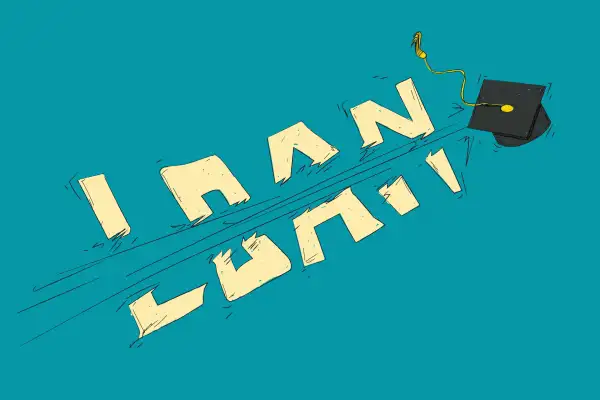The Ultimate Guide to Understanding Pre Approval Student Loans
The Ultimate Guide to Understanding Pre Approval Student Loans
Blog Article
The Role of Credit History in Protecting Small Business Loans for Entrepreneurs
In the competitive landscape of entrepreneurship, protecting a small service lending commonly pivots on the crucial aspect of credit score ratings. A higher credit rating can open doors to desirable car loan problems, while a reduced score might provide considerable obstacles.
Understanding Credit Rating
Credit scores are important numerical representations of a person's credit reliability, functioning as a critical factor in economic decision-making for lending institutions. These scores are originated from a thorough analysis of an individual's credit report, incorporating facets such as repayment background, credit score application, size of credit report, brand-new charge account, and kinds of credit rating used. Generally ranging from 300 to 850, higher scores indicate reduced danger to loan providers, while lower ratings indicate higher threat.
The computation of credit report is lugged out by credit scores bureaus using exclusive algorithms, with the most commonly acknowledged designs being FICO and VantageScore. Each model may evaluate elements slightly differently, however they all aim to offer a constant procedure of credit history danger. A solid credit rating mirrors the person's dependability in taking care of financial obligation, making prompt settlements, and maintaining a healthy and balanced equilibrium in between credit rating made use of and offered credit history.
It is essential for people and company owner to recognize their credit report, as these numbers can have far-reaching effects past personal money. Regularly keeping track of one's debt report, remedying mistakes, and adopting sound financial routines can significantly enhance credit ratings, consequently enhancing the individual's overall economic profile and creditworthiness.
Importance for Financing Approval
Comprehending one's credit rating is fundamental, as it plays a significant duty in the procedure of funding authorization for small companies. Lenders utilize credit rating as a key metric to examine the credit reliability of applicants. A solid credit rating shows a background of responsible economic actions, recommending to loan providers that the candidate is likely to pay off the lending promptly. A high credit scores score can substantially improve an entrepreneur's opportunities of safeguarding a financing with positive terms, including reduced interest prices and more versatile repayment choices.
In comparison, a low credit rating could indicate possible threat, leading loan providers to either turn down the car loan application or impose stricter conditions. This makes it vital for business owners to be conscious of their debt standing, as it directly influences their capacity to access resources. Debt ratings offer as a standard action that allows lenders to improve their decision-making process, ensuring effectiveness and uniformity. As local business typically call for prompt accessibility to funds for growth and sustainability, preserving a durable credit history ends up being crucial. Hence, understanding and managing one's credit rating is a crucial element of getting ready for loan applications and attaining company success.
Factors Influencing Ratings
Several variables add to the determination of a credit report, each playing an essential duty in shaping a person's credit report profile. Among these, repayment history stands apart as one of the most influential, reflecting the timeliness and consistency of financial obligation payments. Lenders closely inspect this element to evaluate financial dependability. The quantities owed, or credit rating application, considerably impact scores. A high ratio of made use of credit score to offered credit scores can recommend monetary overextension, adversely influencing credit reliability.
Length of credit score history additionally variables into credit report computations, with a much longer credit rating typically seen more favorably. This metric offers insight into the person's lasting monetary actions, offering lenders a more comprehensive perspective on their credit scores monitoring abilities. Furthermore, the types of credit report in operation are thought about, as a mix of debt accounts, such as rotating charge card and installment lendings, can demonstrate the ability to handle different monetary commitments.
Last but not least, current credit score inquiries may affect scores (pre approval student loans). Constant applications for new credit rating can suggest financial distress, therefore negatively influencing the score. Each of these aspects is crucial in the detailed examination of a credit history, affecting a business owner's ability to safeguard a little company finance
Improving Your Credit History
Enhancing one's credit rating belongs to supporting a garden; careful attention to crucial areas can generate significant improvements. To start, guaranteeing prompt repayments on all charge account is crucial. Payment background constitutes a substantial section of a credit report score; check my reference therefore, establishing automated tips or repayments can assist keep uniformity. Furthermore, reducing debt degrees is necessary. High credit report Resources use proportions, or the quantity of credit utilized relative to the debt limit, can adversely influence scores. Purpose to keep application below 30% of total readily available debt.

Lastly, maintaining older credit scores accounts can positively influence the typical age of credit, which is another element in scoring models. While brand-new credit inquiries need to be decreased to prevent short-lived rating dips, accountable credit report administration over time will normally cause score enhancement, hence enhancing eligibility for favorable tiny service funding terms.
Alternate Financing Options
Business owners with less-than-ideal credit score scores might find these options not just much more accessible however additionally customized to their distinct organization needs. These platforms commonly provide much faster authorization processes and more flexible terms than standard banks, typically taking into consideration factors past credit history ratings, such as service efficiency and money flow.
Another viable alternative includes crowdfunding, where business owners can raise capital from a huge pool of small investors through platforms like Kickstarter or Indiegogo. This technique not just gives funds yet additionally confirms business ideas through direct involvement with potential consumers. Additionally, microloans, commonly supplied by not-for-profit organizations, satisfy local business and start-ups. They use smaller sized car loan amounts with lower passion prices, making them perfect for entrepreneurs that call for restricted funding.
Invoice funding and vendor cash developments are likewise worth thinking about. The former includes selling outstanding invoices to a lender at a discount, while the last gives a breakthrough on future sales. Both choices can improve capital without the rigid credit score demands of traditional lendings.
Final Thought

These scores are obtained from an extensive analysis of a person's credit rating background, including aspects such as settlement history, debt use, length of credit history, brand-new credit history accounts, and kinds of credit utilized (pre approval student loans). A solid credit history rating reflects the person's reliability in handling financial debt, making prompt repayments, and maintaining a healthy equilibrium between credit made use of and available credit history

Report this page